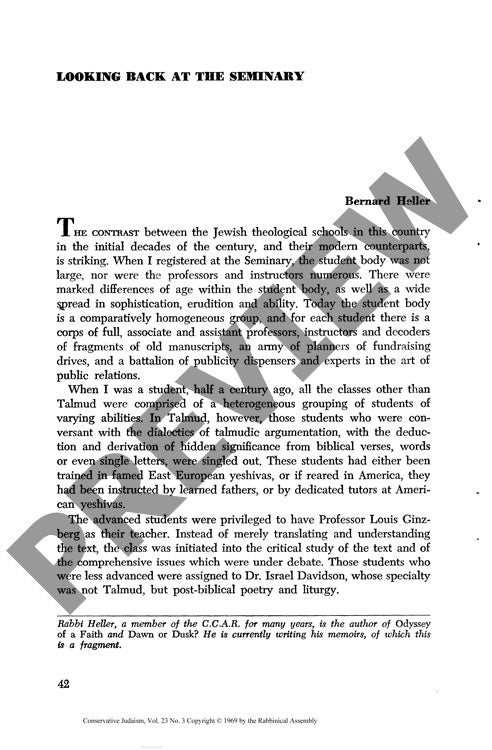Looking Back at the Seminary
Couldn't load pickup availability
This memoir fragment by Rabbi Bernard Heller examines the transformation of Jewish theological education through a retrospective analysis of the Jewish Theological Seminary during the early twentieth century. Using autobiographical methodology, Heller contrasts the intimate, heterogeneous institution of his student years half a century prior with the expanded, homogeneous seminary of the 1960s. The study reveals significant demographic and pedagogical differences, particularly in the diverse student body composition and specialized Talmudic instruction that characterized the earlier period. Through detailed portraits of faculty members including Louis Ginzberg, Israel Friedlander, Alexander Marx, and Mordecai Kaplan, the analysis illuminates the distinctive teaching methodologies and scholarly approaches that shaped Conservative rabbinical education. The research explores student motivations for pursuing rabbinical careers, revealing that economic incentives were minimal and most candidates were driven by devotion to Jewish learning, peoplehood, or scholarly pursuits rather than divine calling. The findings demonstrate how the Seminary's standardized curriculum, though limited in scope, provided comprehensive grounding in Jewish scholarship through intensive faculty-student relationships. This historical examination contributes to understanding the evolution of American Jewish theological education and the institutional culture that produced a generation of Conservative rabbis who would significantly influence twentieth-century American Judaism.

More Information
-
Physical Description
-
Publication Information
Published 1969
ISBN
-
Publication Credits
Bernard Heller

